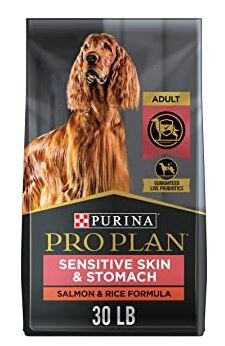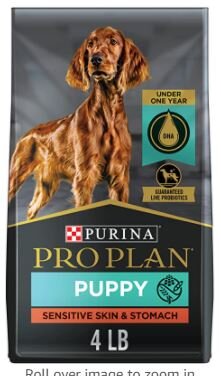preparing for your puppy
There is (in my opinion) never a more exciting time than when you are preparing for your first french bulldog puppy! I’m sure you’ve heard all the “oh my gosh, you’re getting a french bulldog? Aren’t they hard to care for?” comments. DO NOT LET THEM SCARE YOU. Preparing for a french bulldog is just like preparing for another puppy. Just like any other dog, you learn about their needs, prepare your home and get ready for infinite cuddles. I’ve broken down your puppy preparations into three easy steps: Environment and entertainment, feeding and potty training!
Environment:
While we do NOT suggest crating your dogs for long periods of time, we do suggest preparing an area where your puppy can be while you are not home or unable to supervise them. This is safer for your puppy and also saves your belongings from curious puppy teeth! We personally use a Clearly Loved Pet Lucidium Dog pen placed in an area of the house where the puppy is not isolated. It allows our puppys plenty of space to stretch out and lounge, play, eat and potty. It is also tall enough and strong enough that they can’t jump out or push it around. We help our puppy be comfortable and learn all at once by separating the pen into two defined areas: sleep & play and potty. You don’t need multiple enclosures or even dividers to do this. You simply need a large enough area that you can place their bed, toys and a small food bowl on one end and potty pads on the other.
We’ve found this method to be very effective in keeping our puppy safe and entertained while also encouraging early potty training habits.
Feeding:
When your Baker Built puppy comes home they will eating Purina Pro Plan Puppy Sensitive Stomach- Salmon and Rice. We send a bag home with you not only for your convenience but also because it is important to make food transitions slowly. Transitioning slowly helps avoid an upset stomach brought on by new foods introduced too quickly. We love the small bites because it is easy for puppy to eat and limits the possibility of choking on large bits of kibble. It is also very nutritious, calorie dense and available at most pet retailers. As our puppies grow, we transition them to Life’s Abundance All Stages- our favorite dog food! No matter what food you choose to feed, you do need to introduce it slowly by mixing it in little by little to their puppy food until you can transition completely.
We suggest getting a shallow bowl with a slightly elevated or slip-proof base. Keep your puppies water free of dirt or debris. Puppies should be fed 1 cup of food per day, make sure you monitor their weight gain and keep an eye out for any tummy trouble.
Treats. Who doesn’t want to give their puppy treats? It’s a fun bonding experience and also handy for potty training. Like with food, we encourage being mindful of introducing treats. We start with life’s abundance tasty rewards because they are small and easy to digest. Any small training treat you choose will be fine, just be sure to watch for any tummy issues! We do NOT suggest large treats, treats with lots of ingredients, rawhides, bones or any kind of treats that can splinter in the throat.
POTTY TRAINING:
We have used two methods of potty training. The first is our favorite which is classic training with treating. The method is simple: we take puppy out OFTEN (every 15-20 minutes) and give heavy praise and treat when they go potty. It is time consuming but its what we’ve found works best!
We have also crate trained in the past. Crate training is where you crate your puppy, only taking them out to eat and go potty- treating and praising when they go outside. It is effective but not our favorite method as it leaves the puppy isolated for long periods of time.
What we do know is a combination! We Classically potty train during the day and crate train at night. It allows us to teach our puppy with lots of attention and love but also saves our sheets at night!
EVERYTHING WE LOVE AND USE FOR OUR PUPPIES CAN BE FOUND LINKED DOWN BELOW
Transiton to adulthood
Frenchie transitions from puppy to young and mature adults has been very smooth in our experiences. With their potty breaks being taken outside and their tummies more settled, we focus on training and socializing further. This includes simple commands, leash training, etc.
FEEDING:
Once they are fully transitioned to their adult food, we start adding in supplements based on their weight and age. For us it’s a general multivitamin, probiotics and omega. (We use ZestyPaws brand.) All our frenchies sleep with us in bed or on their beds in the living room. We have a dog door that allows them to come in and out as needed. We have very very few accidents in our young adults and adults. They only potty inside in protest if it’s been raining and the grass is wet- LOL.)
We choose to free feed our adults- meaning they have access to food at all times. We used a time feeder that is set to release food on a schedule each day so that no one eats everyones portion all at once. If you choose to feed on a schedule (most people do morning and evening) you should still have accessible water at all times.
Even as adults, we dont not use any treats that can splinter or are very large. Our dogs love plain ol’ lunch meat and cheese (in moderation) but their favorite are chewing horns.
Keeping your frenchies teeth and coat healthy are very important. We use this dental water additive that is flavorless and effective to fight off doggy tooth bugs. In addition to the omega supplements which help their coats we bathe with a deshedding shampoo and conditioner and lightly brush. It is not necessary to bathe your french bulldog super often and it actually can strip their coat of essential oils. Around twice a month or when their caked in mud has been our go to schedule. If your frenchie is experiencing seasonal allergies you will notice them almost constantly licking their feet. Call your trusted vet to schedule an allergy shot and ask about allergy rinses they suggest.
TRAINING:
We prefer to use a harness when walking as we feel it is the easiest to control while still being comfortable for our dogs. We are not experts on leash training and really just train and adjust based on the different personalities. You can find information about leash training we found helpful HERE. When walking your frenchie, it is important to be mindful of temperature. We do NOT walk our frenchies in heat over 80 degrees or in extreme cold. We always test the concrete with our hands on warmer days and bring plenty of water along with us. In the warmer months, we do limit walks to 10-15 minutes and keep a close eye on their comfort.
Just like we are not professional leash trainers, we are also not experts on behaviour training. We found lots of helpful information HERE and HERE. We never use punishment based training methods because not only can our hearts not take it but we find our dogs respond best to praise. Of course we have been known to use “scary mommy/daddy voice” if they hop on the table to help themselves to our snacks :P )
General Health:
It is important to take your dog for regular veterinary appointments and on an updated vaccination schedule. You should always consult your vet about any health issues and listen to their advice (or get a second opinion!)
Other things we’ve found helpful are all linked below including our favorite washable puppy pads and suspended mesh dog bed.
choosing a VETERINARIAN
First step is finding a vet you trust and that is knowledgeable about french bulldogs. Important questions to ask them are:
Are you familiar with brachycephalic breeds?
Have you worked with french bulldogs before?
What special treatments, if any, do you suggest?
Any vet that is comfortable should be able to answer your questions with ease. It is very important if you choose to breed that you find a vet that SPECIALIZES in reproductive health. Questions for a reproductive vet that are essential are:
Are you comfortable performing semen collection and analysis?
Have you performed AI or TCI procedures in office?
Do you have ultrasound and xray equiptment?
Have you performed a C-section on a french bulldog?
Do you intubate during C-sections?
If you are in the Dallas-Fort Worth Metroplex we highly recommend Josey Pet Hospital as the best reproductive vet you can get. We also love Denton Veterinary Clinic for general health and check ups.
the most important dos and donts
DONT:
Let your frenchie out in heat above 75 degrees for long periods of time and/or unattended.
Do not leave your frenchie unaccompanied in the car in the heat. (Or ever)
Walk your french bulldog for long periods of time and/or in the heat
Let them fart anywhere where you can smell it :P
DO:
Give your frenchie lots of love and attention
Feed a nutritious and calorie dense food
Keep very hydrated (and add dental water for tooth health!)
Supplement with appropriate vitamins
Be patient and praising during potty training.
Take them for regular vet visits and up to date vaccinations.





























